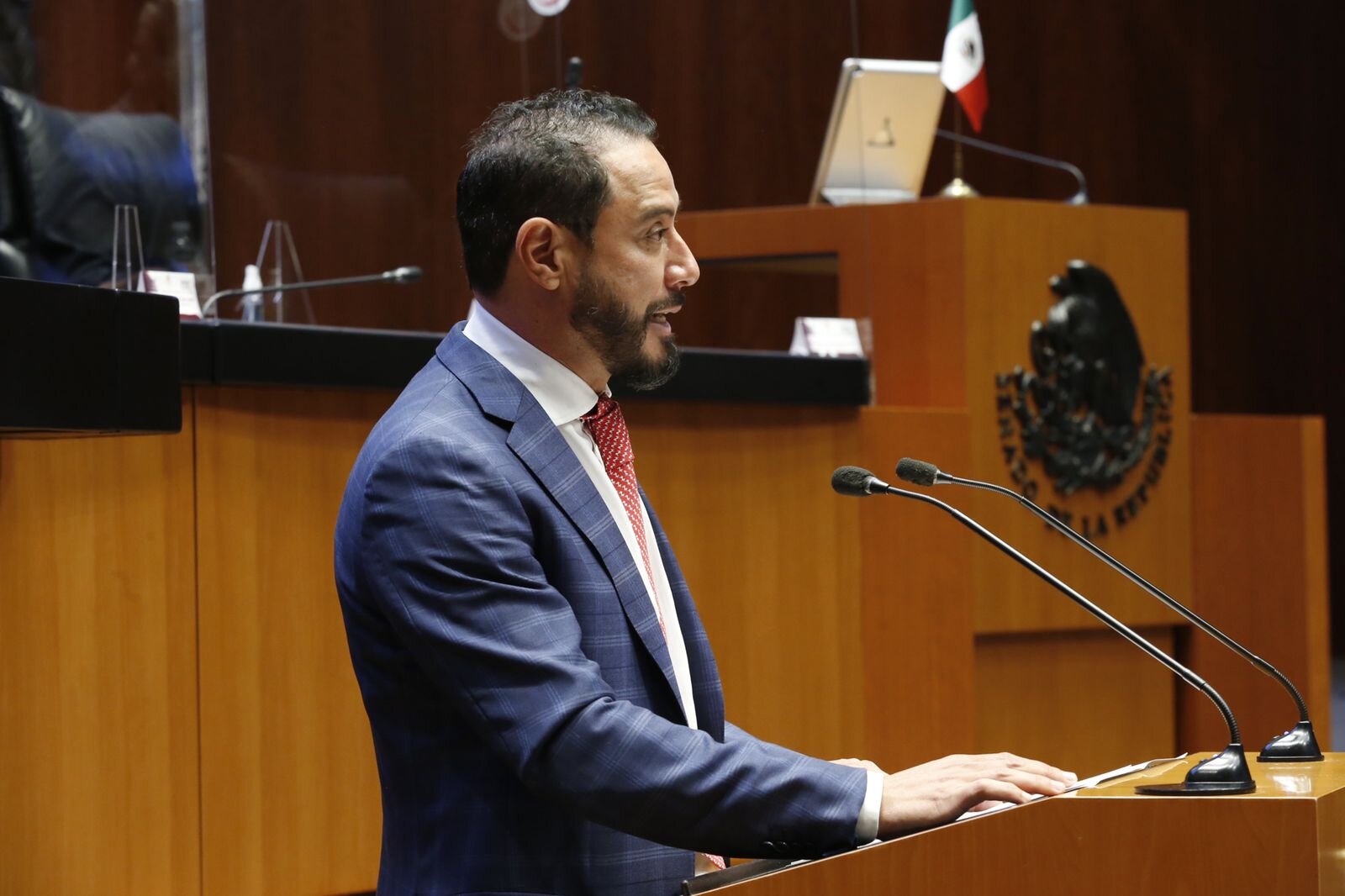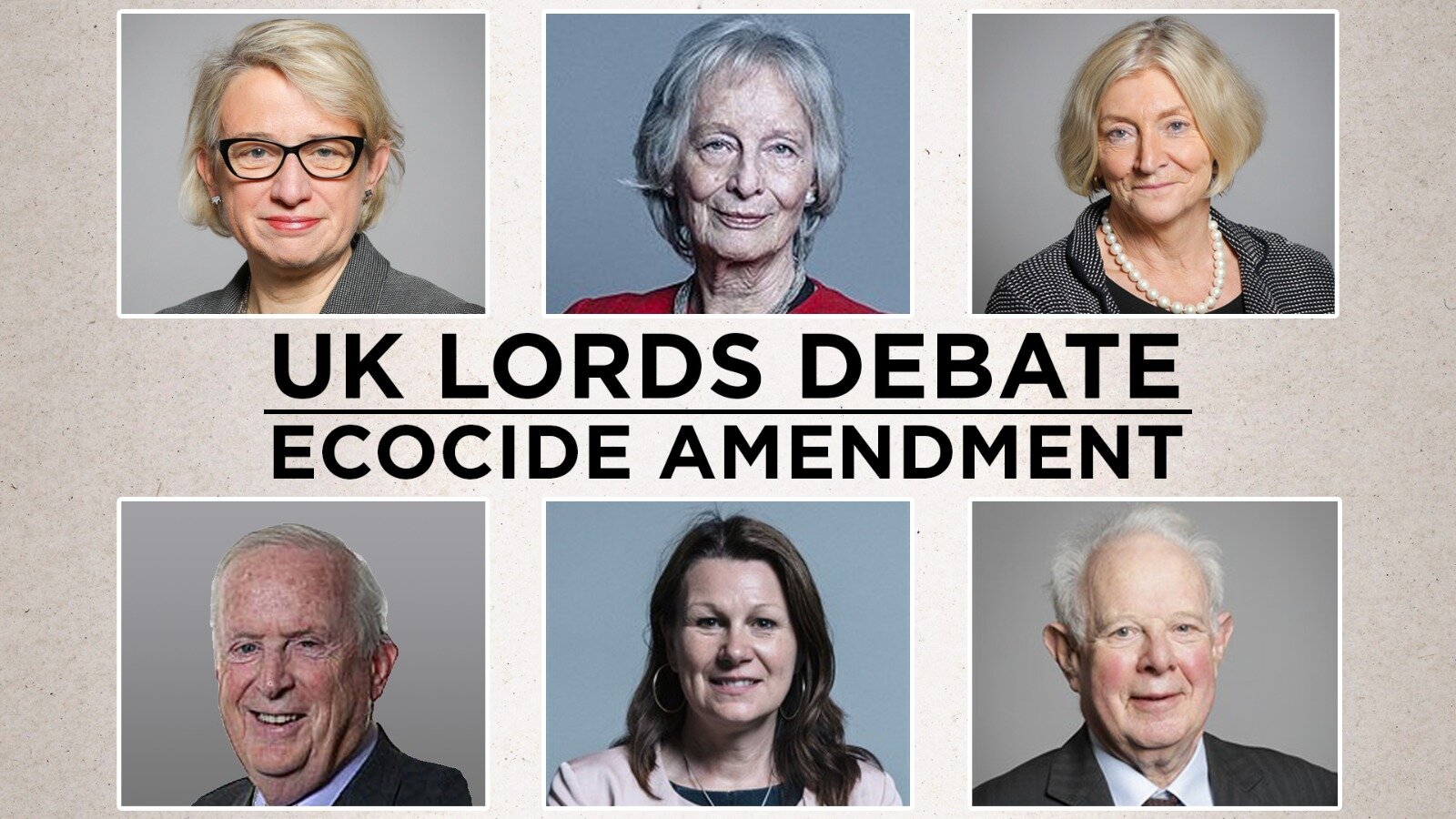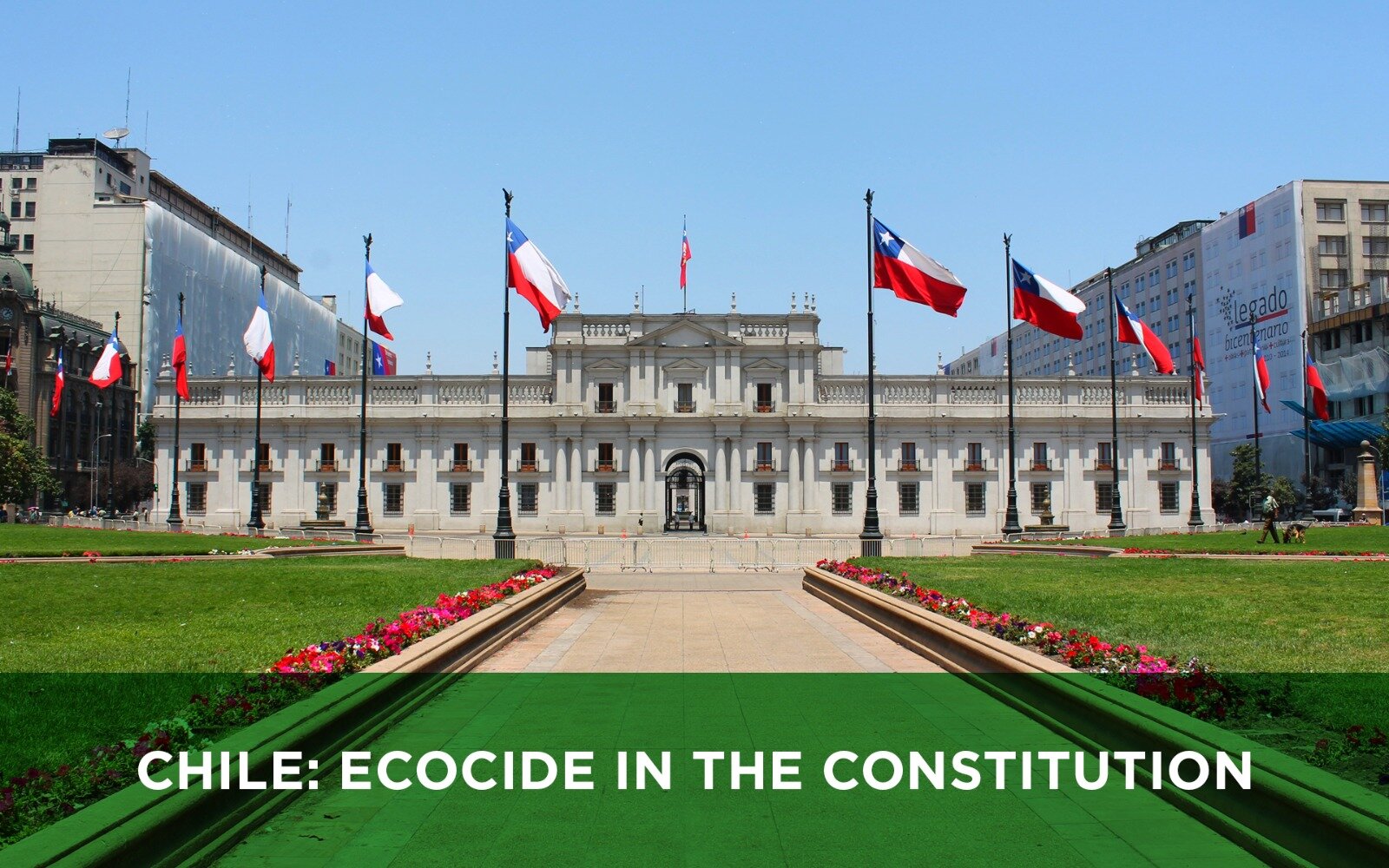Mexico: proposal of law to recognise ecocide as a serious crime
On Thursday 23rd September, Senator Raúl Paz Alonzo presented a bill before the Senate to reform the Federal Criminal Code and make Ecocide a serious crime in Mexico. Until now, the crime against the environment only contemplated economic sanctions, but this is a big change since anyone who commits ecocide could be deprived of liberty under the new law.
In his speech, Raúl Paz Alonzo highlighted the environmental crisis that Mexico and the world are experiencing and, referring to the most recent report of the UN's International Panel on Climate Change (IPCC), he highlighted the risk of disappearance of countries such as Vanuatu due to rising seas caused by rising temperatures.
In his presentation of the law, the PAN Senator for Yucatan spoke of the international movement of parliamentarians and civil organisations to make ecocide an international crime and explained that the presentation of this bill is in line with this effort to put Mexico at the forefront in the defence of the planet and in the fight against the climate emergency it is experiencing:
"...In union with NGOs, governments, activists and experts, we seek to create an international ecocide law. Climate change is a reality that cannot go unnoticed... We are all connected: what happens in the Amazon affects Mexico with sargasso, what happens in Africa affects Europe, even two islands in the Pacific are about to disappear if the sea level continues to rise due to the melting of the poles...".
On Mexico, Alonzo emphasized the current water crisis in Mexico where - citing data from April 2021 from the National Water Commission CONAGUA - more than 70% of the territory has drought problems and he also took up data from the National Commission for the Knowledge and Use of Biodiversity on the loss of species in the country. In the words of the Senator:
"In Mexico, we must join this trend in the face of this climate emergency, creating facts and actions that allow us to solve the crisis caused, by means of a reform to our Criminal Code, by introducing the crime of ecocide. So that in addition to the economic sanctions that are in the law on climate change, it is punishable by imprisonment and so that people think twice before authorising or ordering the total or partial destruction of fauna, flora or any ecosystem in our country...".
According to Maite Mompó, coordinator of the Stop Ecocide campaign for the Americas, "the ecocide law initiative presented in Mexico puts this country at the forefront of Spanish-speaking countries that want to protect the environment effectively for future generations. This protection necessarily involves the creation of criminal laws that establish the individual responsibilities of those who cause ecocide. We will closely follow the development of this law.”
The proposed law will be debated in the Senate's Justice and Legislative Studies Committees and is expected to be passed in the coming weeks.
Fridays for Future call on world leaders to commit to making ecocide an international crime.
Fridays for Future
Call on world leaders to:
Recognize the invaluable impact of biodiversity on indigenous communities’ lives and culture, and commit to make ecocide an international punishable crime.
Read full message to world leaders HERE
"We are delaying while the planet burns"
An excellent debate took place this week in the UK’s House of Lords following submission of a revised amendment to the Environment Bill by Baroness (Natalie) Bennett.
Environmental bill - Amendment 126:
Ecocide
(1) It is an objective of Her Majesty’s Government to support the negotiation of an amendment to the Statute of the International Criminal Court, done at Rome on 17th July 1998, to establish a crime of ecocide.
(2) In pursuance of subsection (1), a relevant Minister of the Crown must promote discussion of such an amendment, either independently or jointly with other sovereign states, within the Working Group on Amendments of the International Criminal Court within 12 months of this Act being passed.
(3) In this section “ecocide” refers to unlawful or wanton acts committed with knowledge that there is a substantial likelihood of severe and either widespread or long-term damage to the environment being caused by those acts."
The government response, via Minister for Environment and the Pacific Lord (Zac) Goldsmith, repeated its lukewarm position of earlier in the summer: the UK was more interested in the ICC being better able to enforce existing crimes than in supporting new ones. While this meant the amendment did not go through, support in the House was significant:
Baroness Boycott: “the single most important thing about this initiative is that it’s part of that broader process of changing public consciousness, recognising that we are in a relationship with our environment.”
Baroness Whitaker: “we have very good diplomats, whose job is to build consensus. They should be tasked to make a start on this case. We need to make a good showing at Glasgow, do we not?”
Lord Thomas of Cwmgiedd: “this must be an opportunity for global Britain to show leadership on one of the most serious criminal offences of our time. We can do it, and we should not fail.”
Baroness Hayman of Ullock: “the noble Baroness explained in the introduction to her amendment, unlike her amendment in Committee, she is calling for the Government to promote discussion of this. This seems to me to be a thoroughly reasonable request.”
Baroness Bennett expressed her disappointment with the government’s response: “we really are delaying while the planet burns.”
Chile: ecocide in the Constitution
The Subcommittee on the General Framework for Human, Environmental & Natural Rights of the Constitutional Convention held discussions on ecocide, resulting in a favourable vote (10 votes in favor, 1 against, 2 abstentions) for an annex to be added to the new Chilean constitution.
The first draft of the annex is available in Spanish here.
(Unofficial English translation)
We will be keeping a close eye on developments.






